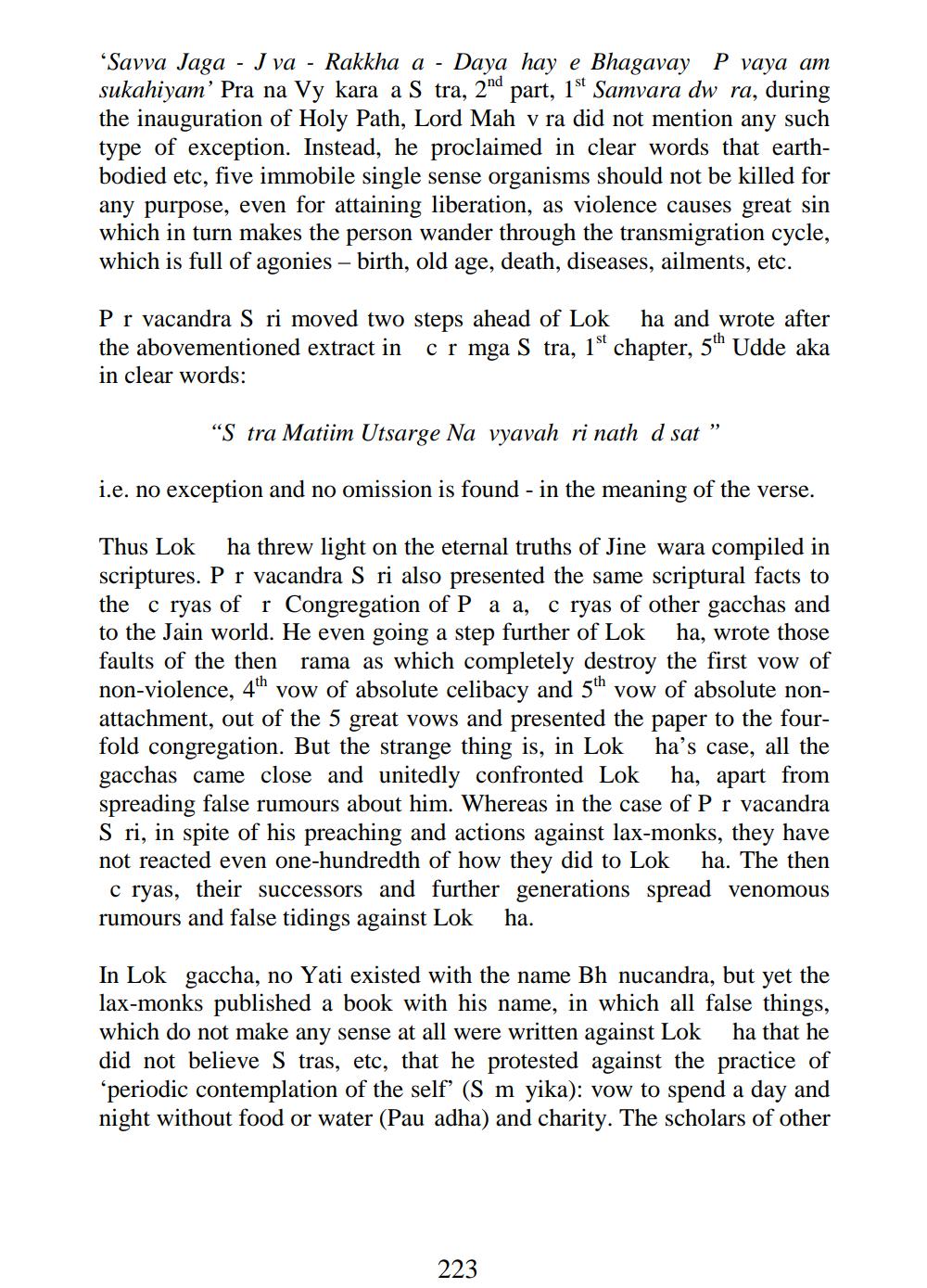________________
‘Savva Jaga - J va - Rakkha a - Daya hay e Bhagavay P vaya am sukahiyam' Pra na Vy kara a S tra, 2nd part, 1st Samvara dw ra, during the inauguration of Holy Path, Lord Mah v ra did not mention any such type of exception. Instead, he proclaimed in clear words that earthbodied etc, five immobile single sense organisms should not be killed for any purpose, even for attaining liberation, as violence causes great sin which in turn makes the person wander through the transmigration cycle, which is full of agonies – birth, old age, death, diseases, ailments, etc.
Pr vacandra S ri moved two steps ahead of Lok ha and wrote after the abovementioned extract in c r mga S tra, 1 chapter, 5th Udde aka in clear words:
"S tra Matiim Utsarge Na vyavah ri nath d sat”
i.e. no exception and no omission is found - in the meaning of the verse.
Thus Lok ha threw light on the eternal truths of Jine wara compiled in scriptures. P r vacandra S ri also presented the same scriptural facts to the c ryas of r Congregation of P a a, c ryas of other gacchas and to the Jain world. He even going a step further of Lok ha, wrote those faults of the then rama as which completely destroy the first vow of non-violence, 4" vow of absolute celibacy and 5“ vow of absolute nonattachment, out of the 5 great vows and presented the paper to the fourfold congregation. But the strange thing is, in Lok ha's case, all the gacchas came close and unitedly confronted Lok ha, apart from spreading false rumours about him. Whereas in the case of P r vacandra S ri, in spite of his preaching and actions against lax-monks, they have not reacted even one-hundredth of how they did to Lok ha. The then
c ryas, their successors and further generations spread venomous rumours and false tidings against Lok ha.
In Lok gaccha, no Yati existed with the name Bh nucandra, but yet the lax-monks published a book with his name, in which all false things, which do not make any sense at all were written against Lok ha that he did not believe S tras, etc, that he protested against the practice of 'periodic contemplation of the self (S m yika): vow to spend a day and night without food or water (Pau adha) and charity. The scholars of other
223




